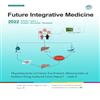
|
-
Molecular Mechanisms of Essential Oils in the Treatment of Diseases via Systems Biology
-
Essential oils (EOs) are natural products with bioactive functions that are obtained from many plant species, e.g., Lavandula angustifolia, and plant parts e.g., flower and leaf, through extraction methods such as hydro-distillation, steam distillation, cold pressing, etc. Such techniques can be dated back to ancient Egyptian and Greek times. EOs represent an important part of traditional medicine and have practical applications in the treatment of human infectious diseases and mental disorders. Although many EOs are effective in disease treatment, the specific pharmacological mechanisms underlying their effects remain unclear due to their complex compositions. Previous studies have attempted to apply pharmaceutical analysis techniques such as HPLC and MALDI-TOF mass spectrometry to elucidate the compositions of EOs. Although these methods are effective at identifying the components of EOs, they provide limited information regarding the mechanisms of the bioactive functions of EOs. In recent years, both molecular biology and computational analyses have emerged as convenient and appropriate approaches for studying the molecular mechanisms of traditional medicines. Due to its multi-compound, multi-target, multi-pathway and multi-disease mode of action, systems biology technology hold the potential for thoroughly understanding the pharmacological effects of EOs in the context of any specific disease.
|